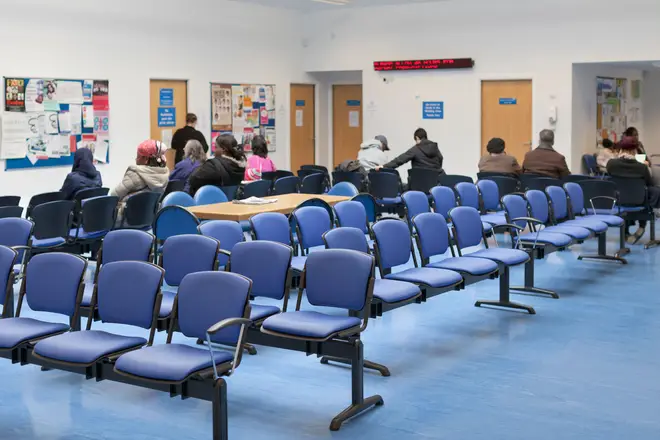
Matthew Wright 7am - 10am
22 January 2024, 07:06

The rate at which people are dying early from heart and circulatory diseases has risen to its highest level in more than a decade, new analysis shows.
In an analysis of 2022, the British Heart Foundation (BHF) found that 80 in every 100,000 in England died from heart and circulatory diseases before the age of 75.
This was the highest level since 2011, which saw 83 per 100,000 die prematurely.
The rate of early deaths from heart disease has risen year-on-year since 2020, showing a clear reversal in the previous trend of falling death rates from cardiovascular diseases.
Despite the fall in death rates between 2012 and 2019, the BFH said there had been a “significant slowdown” in the rate of improvement since 2012.
Between 2012 and 2019, the premature death rate for cardiovascular disease in the UK fell by just 11%, compared to a fall of 33% between 2005 and 2012.
Since 2020, the death rate has almost risen by 13%.

Dr Sonya Babu-Narayan, associate medical director at the BHF and a consultant cardiologist, said: “We're in the grip of the worst heart care crisis in living memory.
"Every part of the system providing heart care is damaged, from prevention, diagnosis, treatment, and recovery; to crucial research that could give us faster and better treatments.
"This is happening at a time when more people are getting sicker and need the NHS more than ever.
"I find it tragic that we've lost hard-won progress to reduce early death from cardiovascular disease."
In 2022, more than 39,000 people died prematurely of cardiovascular conditions including heart attacks, coronary heart disease and stroke - an average of 750 people each week.
This is the highest annual total since 2008.
Dr Babu-Narayan added: “Increasing pressure in recent years on the NHS and the impact of the Covid-19 pandemic are likely to have contributed to things getting worse, but warning signs have been present long before.
"Since 2010, decades of progress in cutting deaths from heart disease has stalled and the health gap between rich and poor has markedly widened.
"People living in the most deprived parts of England have been getting sicker and rates of some cardiovascular conditions have increased.”

NHS England national specialty adviser for cardiovascular disease prevention, Helen Williams said the NHS remains committed to helping those with cardiovascular diseases and prevention.
She said: “Improving the detection and control of high-risk conditions such as atrial fibrillation, hypertension and high cholesterol is among the interventions being rolled out to keep on top of cardiovascular risks, and thanks to the hard work of NHS staff, thousands more people are now being supported to manage their condition more effectively than before the pandemic, reducing the likelihood of heart attack or stroke."
A Department of Health and Social Care spokesman said: “This government has already taken significant action to reduce cardiovascular disease and its causes, including increasing access to testing and successfully encouraging reduced salt and sugar intake, but we know there is more to do.
“Our Major Conditions Strategy will help prevent and manage conditions including cardiovascular disease while our plans to create a smoke-free generation represent the most significant public health intervention in a generation.
“In addition, we are investing almost £17 million in an innovative new digital NHS Health Check, expected to deliver an additional one million health checks in its first four years.”